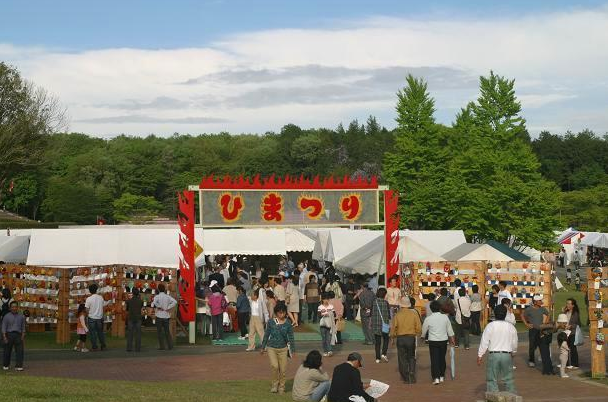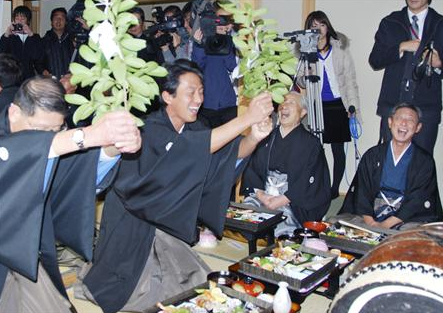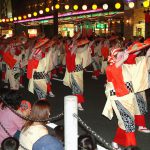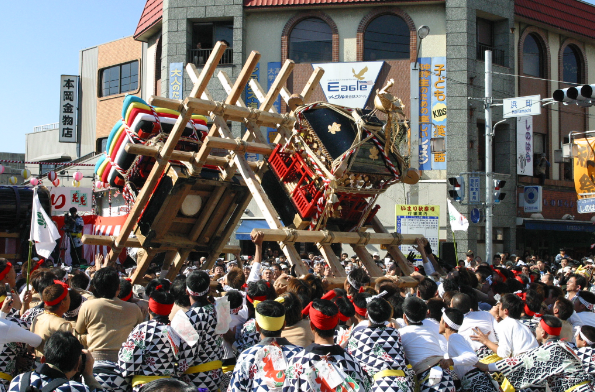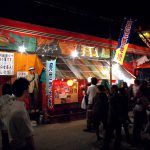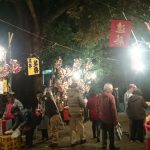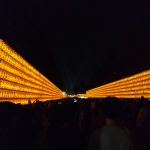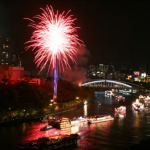Nasukarasuyama: Home to Beautiful Waterfalls and Delicious Soba
A notable tourist spot in Nasukarasuyama is the “Ryumon Falls,” a 65-meter wide and 20-meter high waterfall on the Egawa River, which is said to be inhabited by a legendary giant serpent.
The area around the waterfall has well-maintained walking trails, allowing you to fully enjoy the natural beauty. You can witness different scenic views with cherry blossoms in spring and illuminated waterfalls in summer and during the year-end.
On the Yamisawa Soba Highway, various soba shops serve soba noodles made from locally harvested buckwheat in the Yamizo region. They adhere to the principles of using freshly ground, freshly kneaded, and freshly boiled noodles. Therefore, you can be assured of tasting delicious soba at any shop here.
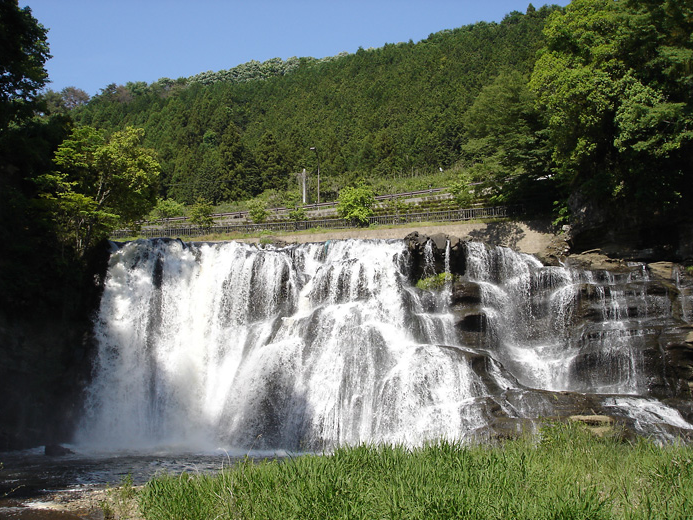
Source: Tochigi Onsen
Let’s Visit the Yamaage Matsuri!
Location: Downtown Nasukarasuyama
Dates: Late July annually
Access: 1 to 30 minutes on foot from JR “Karakawa Station” (varies depending on the performance location)
Approximately 50 minutes from Utsunomiya Kamitsurigawa IC
URL: http://www.nasukara-yamaage.jp/ (Official Yamaage Matsuri Website)
The Yamaage Matsuri is an offering festival for the Yakumo Shrine, featuring unique performances of kabuki on temporary stages set up in the city center. This festival is quite large, making it one of the largest outdoor kabuki dance performances in Japan.
In 1979, the “Yamaage Festival of Karasuyama” was designated as an Important Intangible Folk Cultural Property of Japan. Furthermore, in 2016, it was registered as a UNESCO Intangible Cultural Heritage.
The “mountain” (yama) in Yamaage Matsuri refers to the stage backdrop made by layering Karasuyama washi paper on a wooden frame, depicting mountains and waterfalls. The name “Yamaage Matsuri” comes from the act of lifting (age) these backdrops.
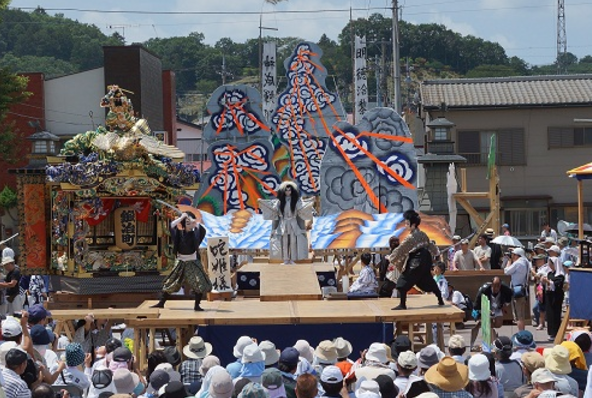
Source: Nasukarasuyama City Official Website
Origin Dating Back to the Medieval Period
The Yamaage Matsuri is a festival with a tradition of about 450 years. The festival’s origin dates back to the 3rd year of the Eiroku era (1560) during the Muromachi period. At that time, an epidemic was rampant in the Karasuyama castle town. The castle lord, Nasu Suneetake, distressed by the situation, enshrined the Gozu Tennō in the castle town to pray for the end of the epidemic and for peace.
The festival’s origin is attributed to the entertainment provided during the dedication ceremony at that time. Initially, lion dances and sumo wrestling were performed, but from the late Edo period, kabuki was incorporated.

Source: Interesting Nichijou
The Floats Themselves are the Main Attraction!
The unique feature of the Yamaage Matsuri is that the floats, which are usually pulled around, are transformed into stages. When the front part of the float, called Gohai, slides out, the cart quickly becomes a stage. The stage has a depth of 100 meters and a height of 10 meters.
Each performance takes about two and a half to three hours. The floats move around different parts of the town, holding performances. When floats meet, an event called “bunnuki” occurs, where different musical performances compete. One of the highlights is the final bunnuki, where all the town’s floats gather and perform a simultaneous musical ensemble with flutes, drums, and bells.
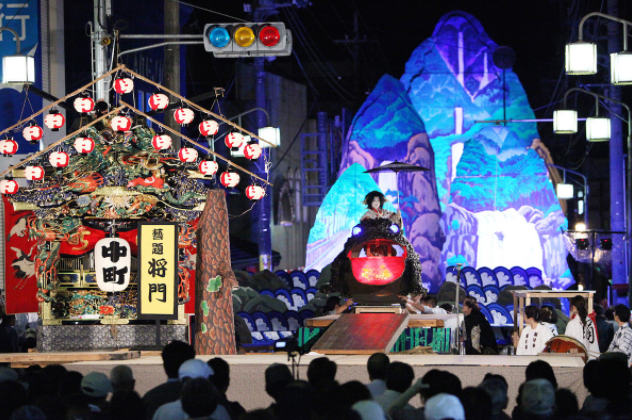
Source: Nippon Travel Magazine
A Festival that Represents Nasukarasuyama!
The festival is on a very large scale, and each town’s stage mechanisms have evolved uniquely, making it one of the highlights. Why not visit to see this unique kabuki performance?
Featured Image: Credit to Yamaage Matsuri Official Website
(Editor: 千八乃)


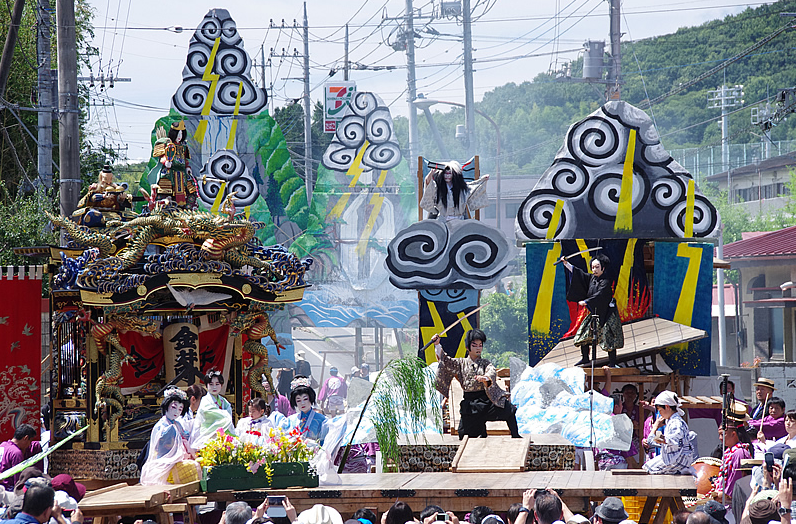
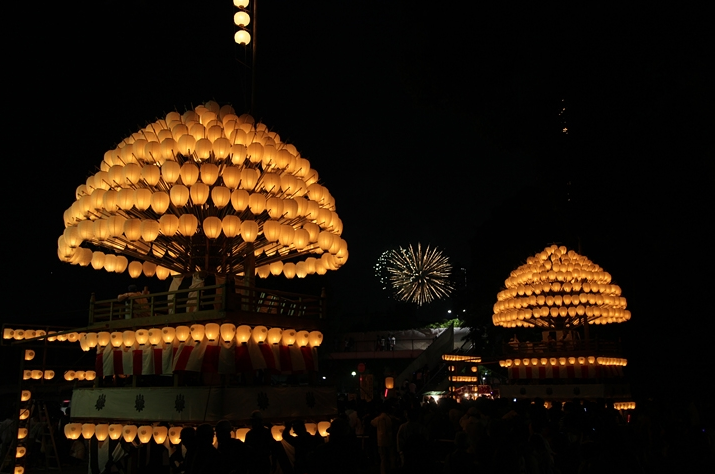
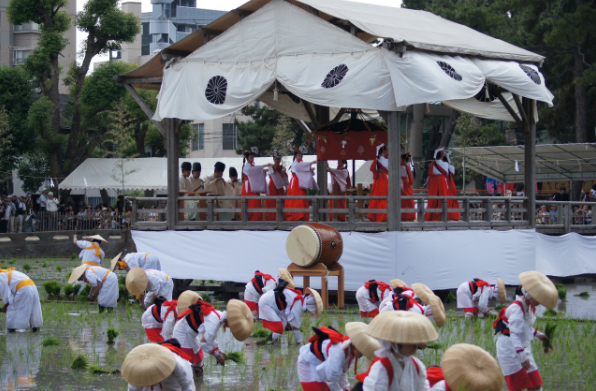
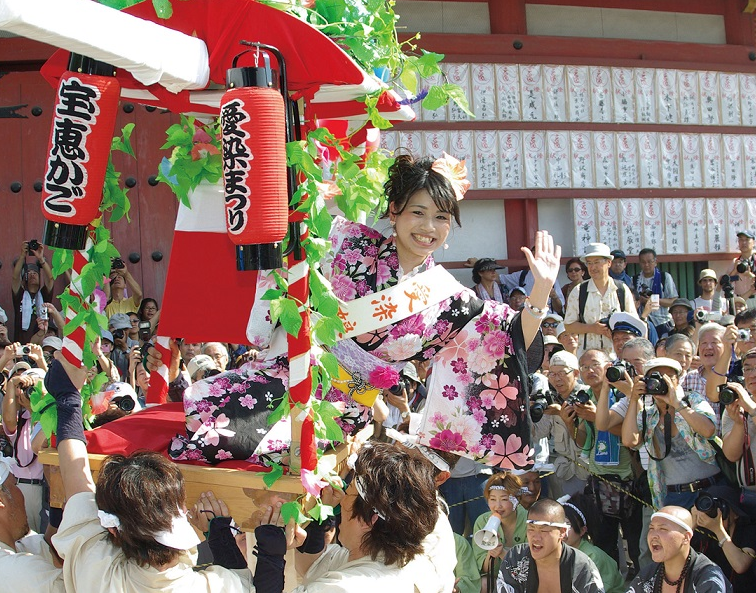
.png)
